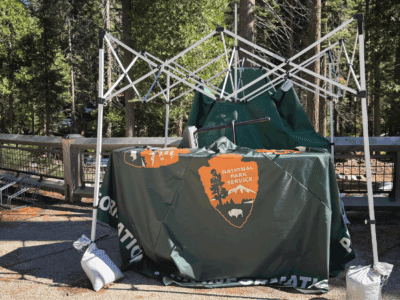Pride Goeth Before a Fall
Trump thinks he can tell courts how to interpret NEPA. He’s wrong.
White House has just released its proposed revisions to the rules about environmental impact statements. The White House Council on Environmental Quality (CEQ) simply does not have the kind of power that it is trying to arrogate to itself. The proposal is marked by hubris about the government’s ability to control how the courts apply the law.
That hubris is evident in the proposal’s effort to tell courts when lawsuits can be brought and what kind of remedies they can provide. For instance, it states that issuance or refusal to issue an impact statement does not trigger the right to go to court, that no claim can ever be raised in court unless it was first raised by the agency, that lawsuits must be always be brought quickly. Some of these might be right, some might not be, but all of them are up to the courts — not the White House — to decide.
The proposal also contains a discussion of how much deference it should receive from the courts, suggesting that it should receive Chevron deference. As I explained previously, this seems to be flatly wrong:
“Congress never gave CEQ authority to issue binding regulations or to do anything else except issue advice. That means that CEQ’s rules are not entitled to what courts call “Chevron deference,” which would require courts to accept the CEQ position if it’s reasonable. Instead, CEQ’s rules can get only Skidmore deference. That means that courts should give a CEQ rule weight based on the “merit of its writer’s thoroughness, logic, and expertness, its fit with prior interpretations, and any other sources of weight.” This seems consistent with the Supreme Court’s more specific statement, issued a decade before the Court clarified standards of deference, that an amended CEQ regulation is entitled to “substantial deference” if it there is a “well considered basis for the change.”
Thus, it is up to the courts to decide whether the White House’s arguments for changing the interpretation of the law are persuasive. Apparently, the White House thinks that it, not the courts, has the power to decide what the National Environmental Quality Act means and how courts should enforce it. If so, it’s overestimating its authority badly.
Reader Comments
2 Replies to “Pride Goeth Before a Fall”
Comments are closed.







Hi, I just want to say thank you for giving me some much-needed perspective on the complexities of environmental law and climate change in recent articles. Climate change has been a constant source of stress for me for as long as I can remember and unfortunately due the news cycle’s current obsession with generating ad revenue with outrage it makes me more angry and bitter than I probably should. This click-baity approach to complex issues only further enforces the tribalism that makes proper debate impossible in recent years, so it is nice to have blogs like Legal Planet remind me of the nuances of law that sensationalist articles fail to mention in an attempt to make me more angry than I already am. Your articles also remind me of what I can and can’t control and that there are multiple solutions to environmental issues so I shouldn’t give up hope when one door of opportunity closes. This is not to say that I am apathetic to the issue–it’s just that I think that constant doom and gloom is at best counterproductive and at worst playing into the hands of the far right by reinforcing their views of anyone to the left of them as hypocritical, domineering, and against free speech. The last thing we need is for people to give Donald Trump a second term just to “own the libs” without considering how his second term would hurt them, too.
Sorry for making this comment so long, but considering how taxing it must be to constantly put these issues into perspective while making sure people still care enough to vote out the obstacles to a safer planet, I thought you could use some kind words for once.
Kind words are always welcome! You’ve honed in on exactly what we’re trying to do. Thanks for your comment.